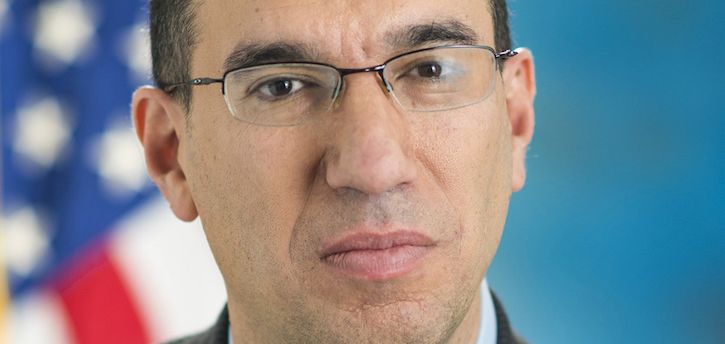What Will Andy Slavitt's All-Star Health Organization Do?
“We envision this as not a part of the current political debate. It’s a wide net right now," the new organization's Executive Director said in an interview.

Many in healthcare woke up this morning to an announcement that former CMS Administrator Andy Slavitt had launched a new organization called United States of Care.
Slavitt penned a commentary for USA Today to contextualize the organization: With political stalemate paralyzing national policy, and millions remaining uninsured while costs rise and outcomes decline, an apolitical effort to influence healthcare policy is needed. “No Americans want to live in fear that a job change, a prior illness, the cost of their medication, the generosity of their insurance company or who wins next election will determine whether they have their access to affordable health care,” he wrote.
The list of names associated with the project was instantly impressive: famed surgeon and healthcare writer Atul Gawande, former Senate Majority Leader Bill Frist (R-TN), former governors Steve Beshear (D-KY) and Jim Douglas (R-VT) will bring their perspective. CEOs of several large health organizations will participate, like Steve Safyer of Montefiore Medical Center and Richard Gilfillan of Trinity Health. Mark McLellan, the former CMS Administrator under George W. Bush with whom Slavitt shared a stage at last year’s HIMSS, will also take part. And Andy Richter’s on board.
But what will they do?
“We’re really in listening and learning mode. We’re not tied to a single policy approach but what we really want to do is help develop and study and learn,” Emily Barson told Healthcare Analytics News™ today. Barson, a former director of Intergovernmental and External Affairs in the Department of Health and Human Services, will serve as United States of Care’s Executive Director.
She said that state-level policy models will be key to shaping the new organization’s approach. The partisan gridlock at the federal level made the opportunity particularly appealing. In her time at HHS, she said she “had a chance to work with a lot of state governments and governors and mayors, and I really appreciated the work that was happening outside of Washington.”
Research that builds up the knowledge base around expanded coverage and value-based care will also be important to the new organization’s early efforts. It has already partnered with the University of Pennsylvania’s Leonard Davis Institute of Health Economics (LDI), which issued a report this morning on state-level efforts in Massachusetts, Vermont, Colorado, California, and Nevada.
Barson said the relationship with LDI was expected to continue and yield more research, and added it was likely that United States of Care would pair with more academic partners to “learn the right lessons.”
For the time, she doesn’t have set outcomes—“It’s launch day,” she cautioned during the interview—but she indicated an openness to all perspectives and a commitment to change in the long term.
“We envision this as not a part of the current political debate. It’s a wide net right now. We’re looking at the landscape and what types of policies will fit within our 3 core principles,” she said.
Telehealth faces a looming deadline in Washington | Healthy Bottom Line podcast
February 12th 2025Once again, the clock is ticking on waivers for telemedicine and hospital-at-home programs. Kyle Zebley of the American Telemedicine Association talks about the push on Congress and the White House.